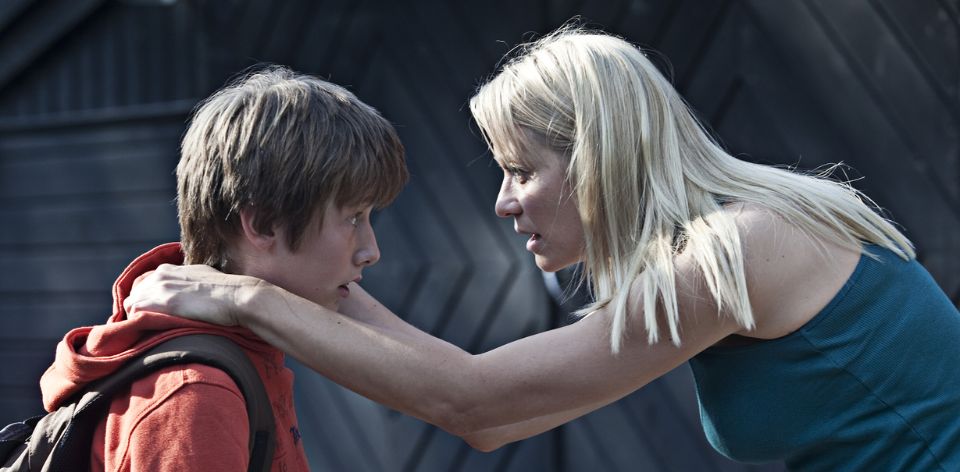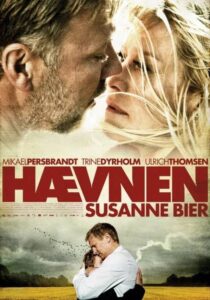Over a career spanning more than twenty years, Danish filmmaker Susanne Bier has made an indelible imprint on international cinema. Starting in the music video business with “Summer Rain” as part of the Songlines compilation, she swiftly progressed to feature films courtesy of 1991’s Freud Leaving Home, receiving a swag of festival accolades (including a special distinction for best first film at the Montreal Film Festival) in the process.
Shorter effort Brev til Jonas and television offering Luischen followed, as did fellow circuit favourites Family Matters, Like It Never Was Before and Credo. However, Bier’s big break came with the commercially successful romantic comedy The One And Only, with Once In A Lifetime, Open Hearts, Brothers (remade in the U.S. in 2010) and After The Wedding receiving similar acclaim. In 2007 the director tried her hand at an English language effort, however the resulting Things We Lost In The Fire was a mixed affair. Returning to her native Denmark, Bier’s eleventh full-length offering is also her most applauded, with emotive drama In A Better World (Hævnen, literally translated as “The Revenge”) winning the 2011 Golden Globe and Oscar for best foreign film.
In a sleepy Danish coastal town, the journeys of two different families become inexplicably linked. Bound by the friendship of pre-teen boys Elias (Markus Rygaard, The Great Bear) and Christian (William Jøhnk Nielsen, in his first and only film role to date), their lives are changed by the impact of bullying, and the results of violence. Elias’ separated parents Anton (Mikael Persbrandt, Everlasting Moments) and Marianne (Trine Dyrholm, Little Soldier) do their best to cope with the tyranny of distance, with Anton’s work as a doctor in a Sudanese refugee camp ensuring his absence from his son’s life is keenly felt. For Christian, his arrival in the idyllic village with his father Claus (Ulrich Thomsen, Season Of The Witch) is far from a pleasant event, coming after the passing of his mother to cancer. When the boys form a strong bond over their shared outcast status, the influence of each upon the other cannot be known. After witnessing an altercation involving Anton, the friends plan an act of retaliation to protest against their subordination, one with potentially fatal consequences that marks the differences and similarities between Anton’s two worlds.
Susanne Bier set out to “explore the limitations we encounter in trying to control our society as well as our personal lives” with In a Better World. In doing so, she aptly demonstrates some of those limitations in trying to simplify those complex dichotomies into the 2-hour format of film. The topics that Bier explores – death, grief, bullying, violence and more optimistically, companionship – are universal, and the script slides effortlessly through English, Swedish and Danish dialogue to remind us of this fact. The message surrounding the cycle of violence could not be clearer: although thousands of miles apart, both Elias and his father are subject to their respective battlefields of the schoolyard and a warn-torn Sudan. Yet it is Elias’ friend Christian that seeks retribution, and his cold and calculating persona is as creepy as it is impenetrable. Yet while the acting is incredible, it is difficult to see a point ,beyond emphasising this cycle of hatred: perhaps there isn’t one.
In a Better World is undoubtedly a powerful film, and one that will be a talking point for most audiences, but this does not necessarily make it an enjoyable one. The overly emotional, and occasionally trite, denouement deflates much of the power the film had to offer. Yet it is not entirely out of step with the film’s central contrivance, the elaborate plan of revenge that has horrible consequences for everybody, and this simply fails to shock when contrasted with the violence of the Sudan or the real-life violence we read about every day. Perhaps this says more about the environment in which the film has been released than the film itself. Schoolyard bullying and youth violence is the subject of a media frenzy of late, with the media cycle perpetuating the embarrassment and potential psychological harm to both bullies and victims far beyond the physical and verbal abuse on the playground. In a Better World is emotionally devastating at times, but always keeps a perplexing distance from the audience, wound up in its own conceptions of a world order gone mad.
The Reel Bits: In a Better World treads familiar territory in its exploration of the cycle of human violence, bullying and revenge. Undoubtedly well-acted, and perhaps well-intentioned, but the extent to which this adds any real insight or emotional impact is questionable.
In A Better World was released on March 31, 2011 in Australia by Rialto Films.






This definitely answered my dilemma, thank you!